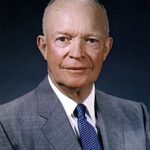On May 1, 1960, the Soviet Union shot down an American U-2 spy plane over Russian territory. President Eisenhower faced an immediate diplomatic crisis. The administration initially claimed the aircraft was conducting weather research. This lie would soon unravel spectacularly.
The U-2 Spy Plane Deception
NASA issued a cover story about a missing weather research plane. The White House maintained this fiction for several days. Eisenhower personally approved the deceptive narrative. Officials claimed the pilot had oxygen problems and strayed off course. ⚠️ The administration underestimated Soviet capabilities and evidence.
The Cover-Up Unravels
Khrushchev revealed that pilot Gary Powers survived the crash. The Soviets displayed wreckage and sophisticated spy equipment publicly. Powers confessed to espionage missions over Soviet territory. 📊 This evidence completely contradicted American claims about weather research.
Diplomatic Consequences
The Paris Summit collapsed before meaningful negotiations began. Khrushchev demanded an apology and punishment for responsible officials. Eisenhower refused to apologize for protecting American security interests. 🌍 The U-2 spy plane incident destroyed years of careful diplomatic progress between superpowers.
Impact:
The U-2 spy plane incident created lasting damage to American credibility and Cold War diplomacy. Eisenhower’s decision to lie had far-reaching consequences across multiple dimensions of international relations.
Immediate Diplomatic Fallout
The Paris Summit ended in dramatic failure on May 16, 1960. Khrushchev walked out after demanding American apologies and guarantees. 🔥 Nuclear disarmament talks were postponed indefinitely. The incident froze superpower relations for months. Both leaders faced domestic pressure to appear strong.
International Relations Impact
Allied nations questioned American honesty and judgment in intelligence operations. The incident strengthened Soviet propaganda about Western aggression. 🌍 Neutral countries became more suspicious of American peaceful intentions. NATO allies privately criticized the timing and handling of spy missions.
Domestic Political Damage
Congress demanded investigations into intelligence operations and presidential truthfulness. Media coverage highlighted the administration’s credibility gap with the public. Democrats attacked Republican foreign policy competence in the 1960 election. 📉 Public trust in government statements declined significantly. The incident became a campaign issue for John F. Kennedy against Nixon.
Long-term Strategic Effects
The Soviet Union accelerated air defense systems and anti-aircraft technology development. Intelligence gathering shifted toward satellite reconnaissance programs. Future administrations became more cautious about acknowledging covert operations when exposed.
